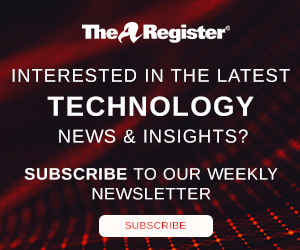Opinion Free software program and open supply licenses advanced to cope with code within the Nineteen Seventies and ’80s. Right this moment it should once more rework to cope with AI fashions.
AI was born from open supply software program. However the free software program and open supply licenses, primarily based on copyright regulation, to cope with software program code should not a very good match for the big language mannequin (LLM) neural nets and datasets that gas AI’s open supply software program. Since many programming datasets, particularly, are primarily based on free software program and open supply code, one thing have to be finished. And that is why Stefano Maffulli, Open Supply Initiative (OSI) govt director, and a bunch of different open supply and AI leaders are engaged on combining AI and open supply licenses in methods that can make sense for each.
Lest you assume that is some form of theoretical, authorized dialogue with no affect on the true world, assume once more. Take into account J. Doe 1 et al vs GitHub. The plaintiffs on this case in america Northern District Court docket of California allege Microsoft, OpenAI, and GitHub, by way of their industrial AI-based system, OpenAI’s Codex and GitHub’s Copilot, had ripped off their open supply code. The consequence? The plaintiffs declare that “prompt” code consists of usually near-identical copies of code scraped from public GitHub repositories, with out the required open supply license attributions.
This case continues. The amended criticism consists of accusations of violating the Digital Millennium Copyright Act, breach of contract (open supply license violations), unfair enrichment, and unfair competitors claims, and breach of contract (promoting licensed supplies in violation of GitHub’s insurance policies).
Do not assume this sort of lawsuit is simply Microsoft’s downside. It is not. Sean O’Brien, a Yale Legislation College lecturer in cybersecurity and founding father of the Yale Privateness Lab, advised my colleague David Gewirtz: “I consider there’ll quickly be a complete sub-industry of trolling that mirrors patent trolls, however this time surrounding AI-generated works. A suggestions loop is created as extra authors use AI-powered instruments to ship code below proprietary licenses. Software program ecosystems shall be polluted with proprietary code that would be the topic of cease-and-desist claims by enterprising corporations.”
He is proper. I have been masking patent trolls for many years. I assure that licensing trolls will come after “your” ChatGPT and Copilot code.
Some folks, reminiscent of Felix Reda, a German researcher and politician, declare that each one AI-produced code is public area. US legal professional Richard Santalesa, a founding member of the SmartEdgeLaw Group, noticed to Gewirtz that there are contract and copyright regulation points. They are not the identical factor. Santalesa believes corporations producing AI-generated code will “as with all of their different IP, deem their supplied supplies – together with AI-generated code – as their property.” In any case, nevertheless, public area code just isn’t the identical factor as open supply code.
On prime of all that, there’s the entire subject of how the datasets needs to be licensed. There are lots of “open” datasets below quite a few open supply licenses, but it surely’s not often a very good match.
In our dialog, Open Supply Initiative’s Maffulli elaborated on how varied artifacts produced by AI and machine studying techniques fall below totally different legal guidelines and laws. The open supply neighborhood should decide which legal guidelines finest serve their pursuits. Maffulli in contrast the present scenario to the late ’70s and ’80s when software program emerged as a definite self-discipline, and copyright started to be utilized to the supply and binary codes.
We’re at an identical crossroads immediately. AI packages reminiscent of TensorFlow, PyTorch, and Hugging Face Hub work properly below their open supply licenses. The brand new AI artifacts are one other story. Datasets, fashions, weights, and many others. do not match squarely into the normal copyright mannequin. Maffulli argued that the tech neighborhood ought to devise one thing new that aligns higher with our targets, fairly than counting on “hacks.”
Particularly, open supply licenses designed for software program, Maffulli famous, won’t be one of the best match for AI artifacts. For example, whereas MIT License’s broad freedoms might doubtlessly apply to a mannequin, questions come up for extra advanced licenses like Apache or the GPL. Maffulli additionally addressed the challenges of making use of open supply rules to delicate fields like healthcare, the place laws round knowledge entry pose distinctive hurdles. The quick model of that is that medical knowledge cannot be open sourced.
Concurrently, most industrial LLMs datasets are black containers. We actually do not know what’s in them. So we find yourself, because the Digital Frontier Basis (EFF) places it, in a scenario the place now we have “Rubbish In, Gospel Out.” We’d like, the EFF concludes, open knowledge.
So it’s that the OSI, mentioned Maffulli, along with Open Discussion board Europe, Artistic Commons, Wikimedia Basis, Hugging Face, GitHub, the Linux Basis, ACLU Mozilla, and the Web Archive are engaged on a draft for outlining a standard understanding of open supply AI rules. This shall be “important in conversations with legislative our bodies.” Even now, EU, US, and UK authorities businesses are struggling to develop AI regulation, and so they’re woefully under-equipped to cope with the problems.
Stefano concluded by saying we should always begin with “a return to the fundamentals,” the GNU Manifesto, which predates most licenses and units the “North Star” for the open supply motion. Maffulli prompt that its rules stay surprisingly related when utilized to AI techniques. By specializing in first rules, we’ll be higher capable of navigate this advanced intersection of AI and open supply. ®


